Your thinking is STILL flawed... find out why!
An illustrated journey through the cognitive biases described in the book the "The Art of Thinking Clearly" - part 2
Last week I shared Part 1 of the visual summary for the book 📖 'The Art of Thinking Clearly' by Rolf Dobelli. It cover the first 10 cognitive biases described.
Our thinking is flawed by countless of those biases, recognizing them is the first step to be less influenced by them.
I’m still illustrating the book, so this is Part 2 of a serie of 10 posts that I will share over time.
If not done already, you may subscribe not to miss any!
As always, thank you for reading and I appreciate all your feedback / thoughts shared in the comments, or by email reply!
It’ll-get-worse-before-it-gets-better fallacy
This is a variant of the confirmation bias we saw in part 1.
Stating that things need to first get worse, and staying vague about for how long, makes it easy to interpret any situation as fitting that scenario.
-If it does gets worse = it fits!
-If it gets better = you were right too!
Example: "No pain, no gain", it is correct in some circumstances, but hearing it should make us careful.Story bias
One day, a teenage friend confessed to me…
“I believe that we are in some kind of movie… and I feel that I’m the protagonist, so I have to keep the viewers entertained…”
Even if we are not seeing the whole world as our story, we all create narratives to make sense of events, and focus more easily on the stories being told.
The trouble is that this biais can lead us to overlook important facts, or use anecdotal evidence rather than objective data.
Example of the biais: As a bridge collapses, a man happens to pass by and miraculously survives. The news may focus more on the man's story than on the reason for the bridge's collapse.Hindsight bias
It is our tendency to perceive pasts events as having been more predictable than they actually were.
Example:
Most of the time you say "I knew it.” ;)Overconfidence effect
Overconfidence bias is the tendency to overestimate our own abilities, knowledge, or judgment.
Example: The classic study where 90% of teachers asked, rated themselves above average at teaching.Chauffeur knowledge
In the book, the author Rolf Dobelli re-tell the story of Max Planck chauffeur who after listening so many time to Planck’s talk, could give the presentation by himself.
“Show-fer” knowledge is a surface knowledge with a good presentation, which can mislead us.Illusion of control
Picking lottery numbers, wearing lucky socks, or believing we can make the elevator come more quickly by pressing the button more... All examples of this bias.
We have less control than we think, but sometimes having the illusion of control is a tool we use to boost our confidence in our actions.Incentive super-response tendency
If you pay for each snake killed, you may find people starting to breed snakes.
If you pay by the hour, you can expect a project to take longer.
Incentives may bring the opposite effect, as people may have the tendency to find clever workarounds to reach the reward.
This is why having a clear understanding and commitment to the intent is important.Regression to the mean
Anything with even a slight influence of luck tends to move toward the average over a long period of time.
We often forget this, and think:Progress, when starting from a low point, must be due to our effort, expenses, or special training.
Similarly, when a top performer or something at the top appears to be regressing, we feel disappointed.
We are not usually able to evaluate what we influenced, and what was a normal regression to the mean.
Whenever possible, we should have control groups that allow us to check if the impact occurs in both groups or not.
Outcome bias
I like to remind myself of this one, we so often hear "Focus on the outcome", which sounds great, but we should be careful...
We have the tendency to look backward, and judge a decision or action based on its outcome rather than the quality of the decision-making process.
We often forget that a result could have been influenced by hidden parameters.
A monkey could, with enough chance or time, guess a lotto ticket.
We need to focus on the why and how of decisions. A rational decision based on the context could still be good, even if it led to a bad outcome this particular time.Paradox of choice
We think having more choices would help us, but too many choices makes it harder to decide and be happy about our choice.
Advices:
- Good enough is enough,
- Have your selection criterias prepared upfront.
And that’s it for this week!
If you enjoyed it, please share it around.
If you like this post, you may also be interested in this one:
You can find the next 10 biases here:





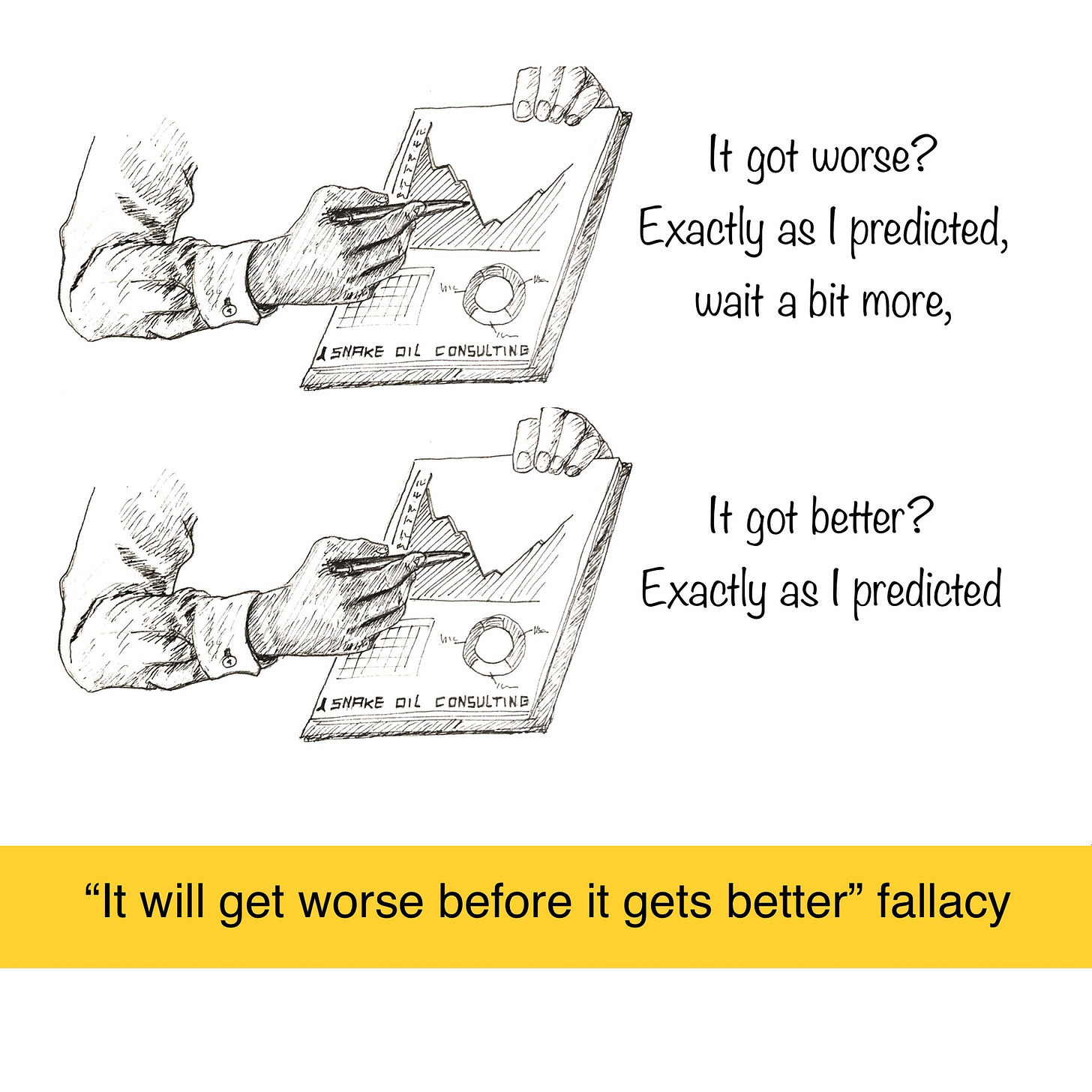
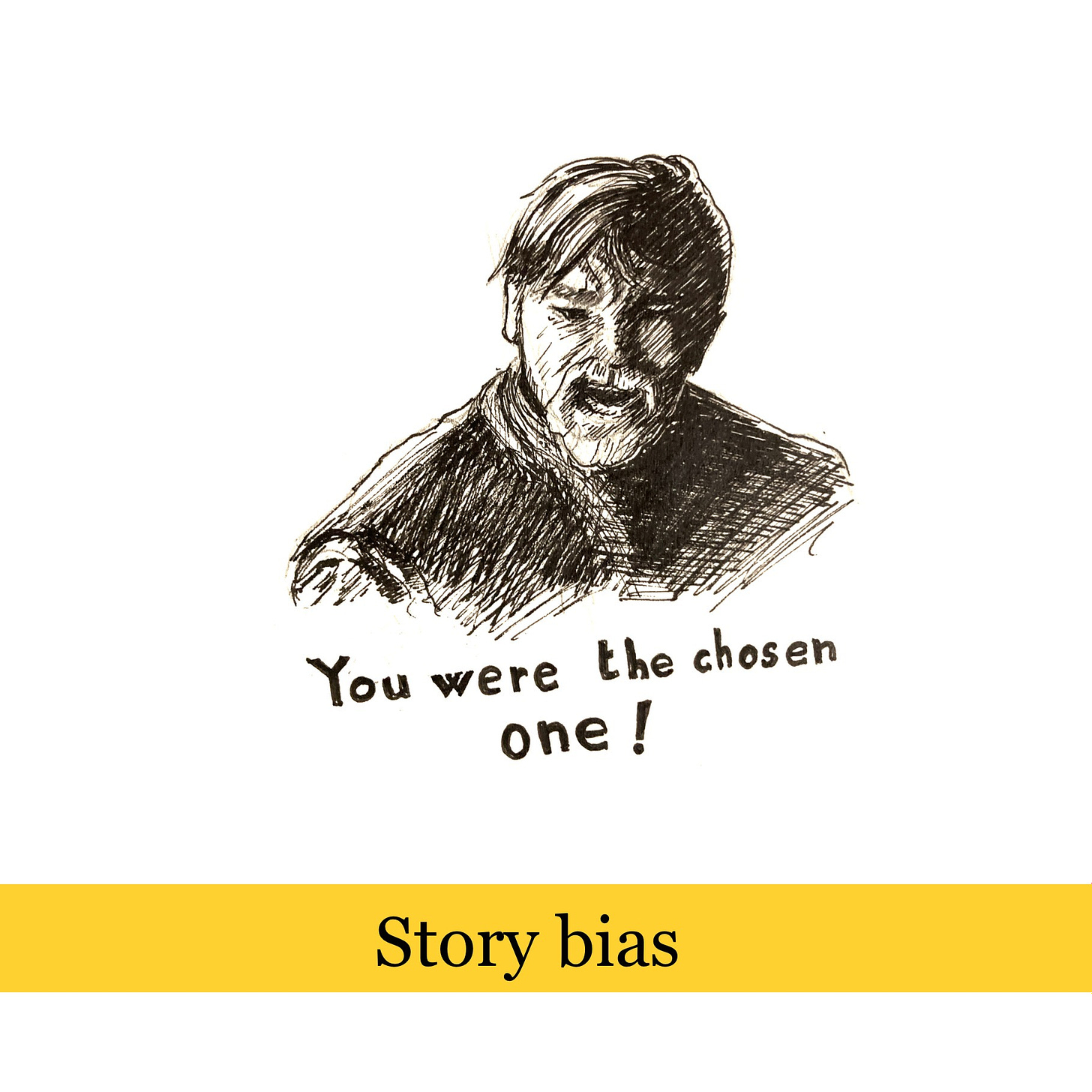
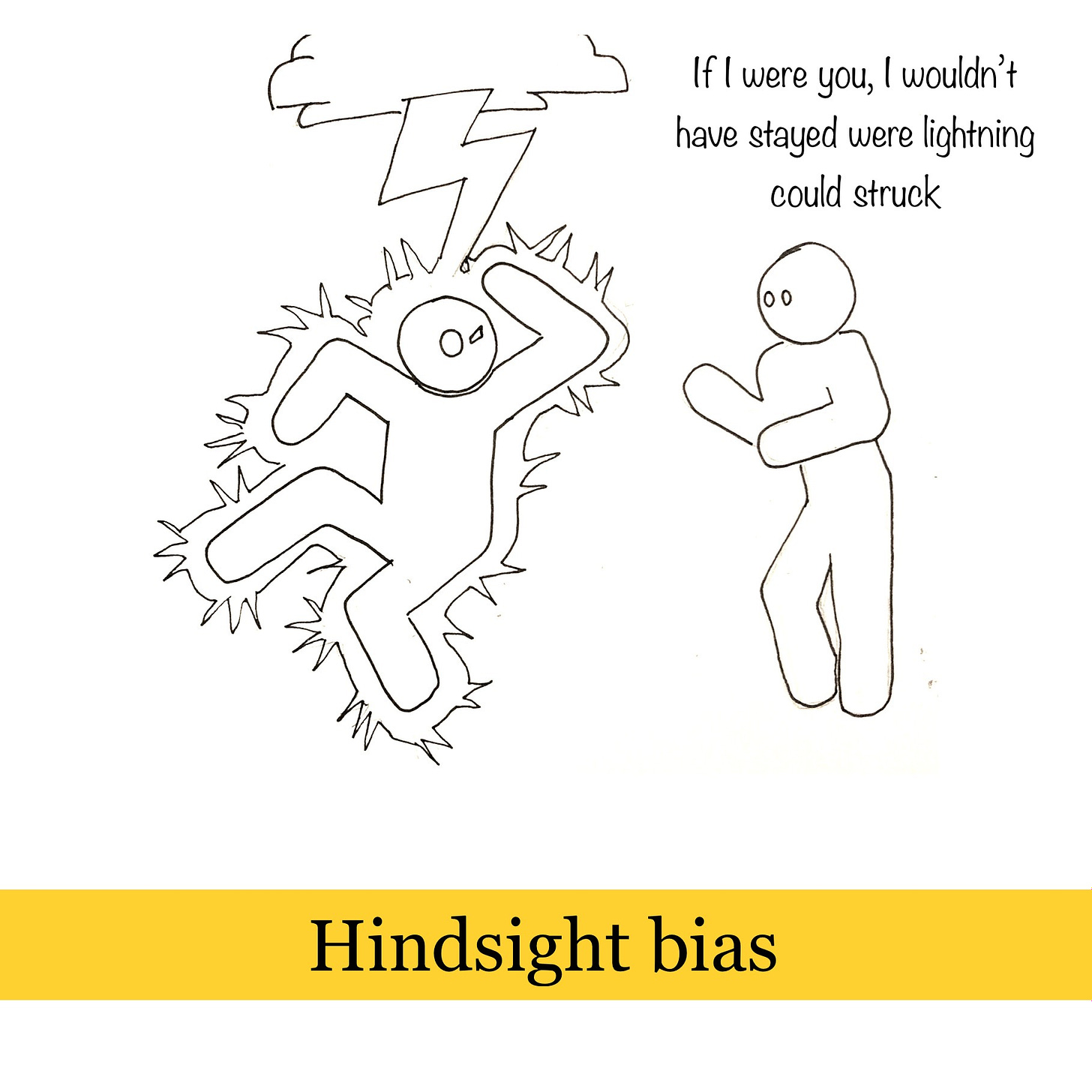
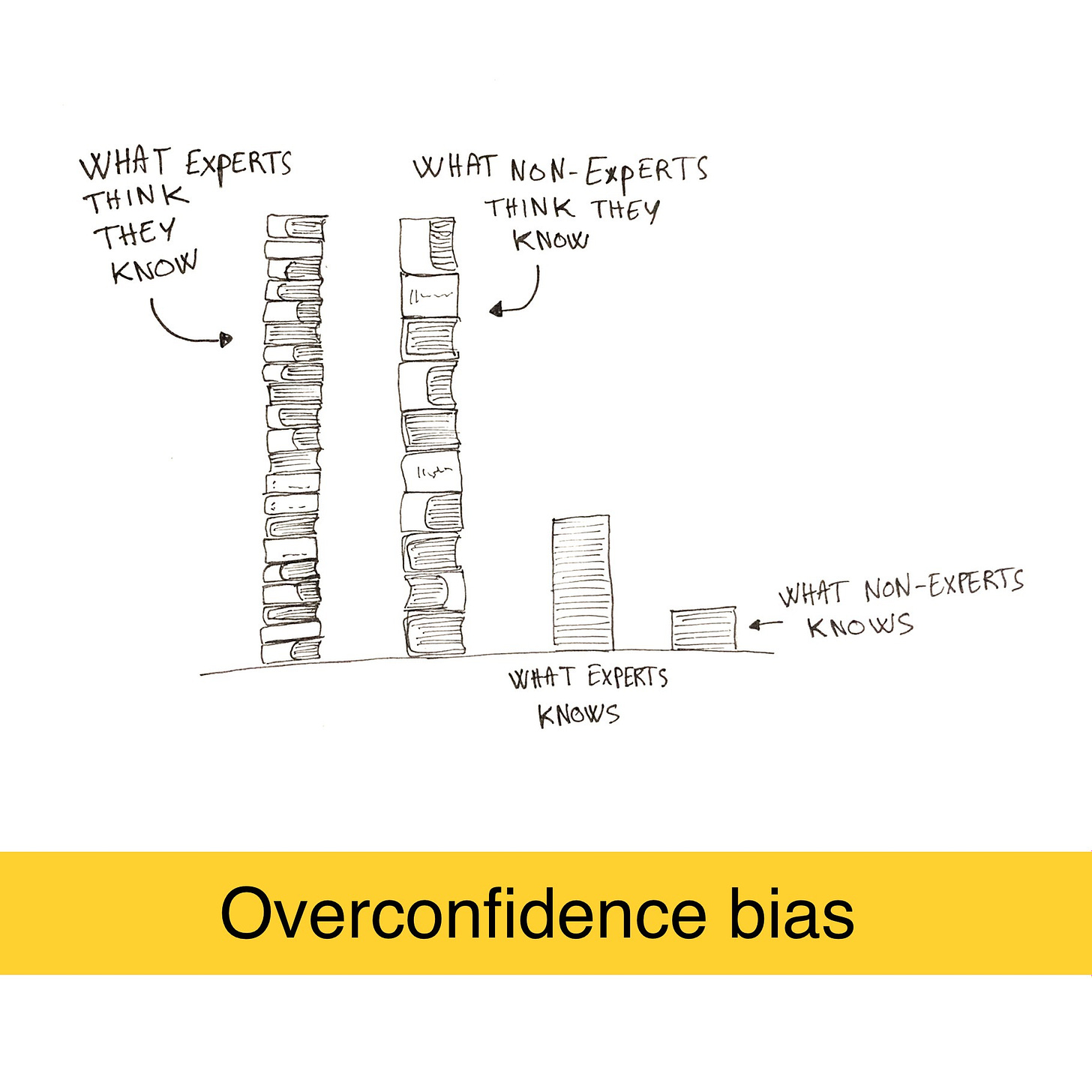
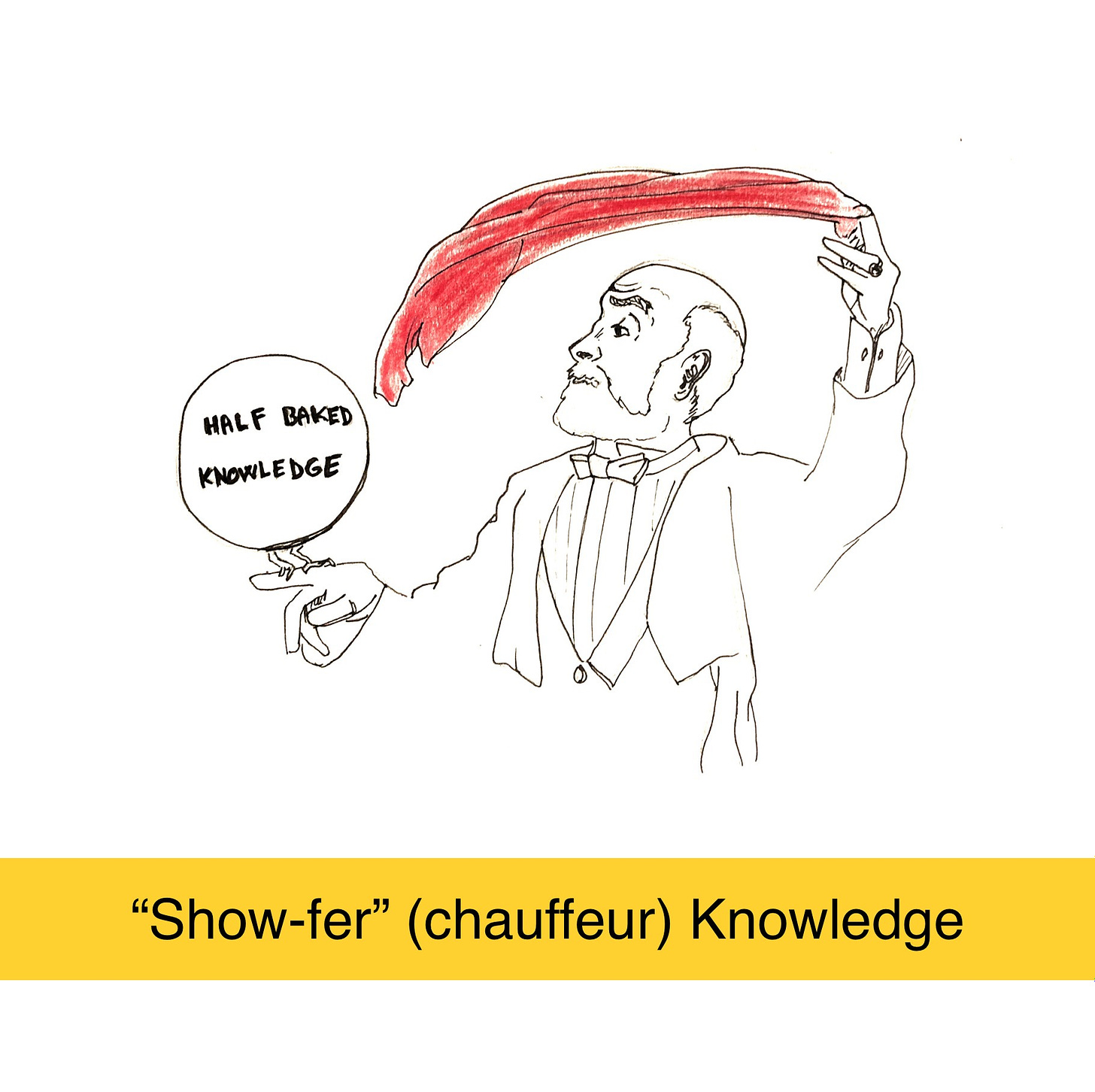
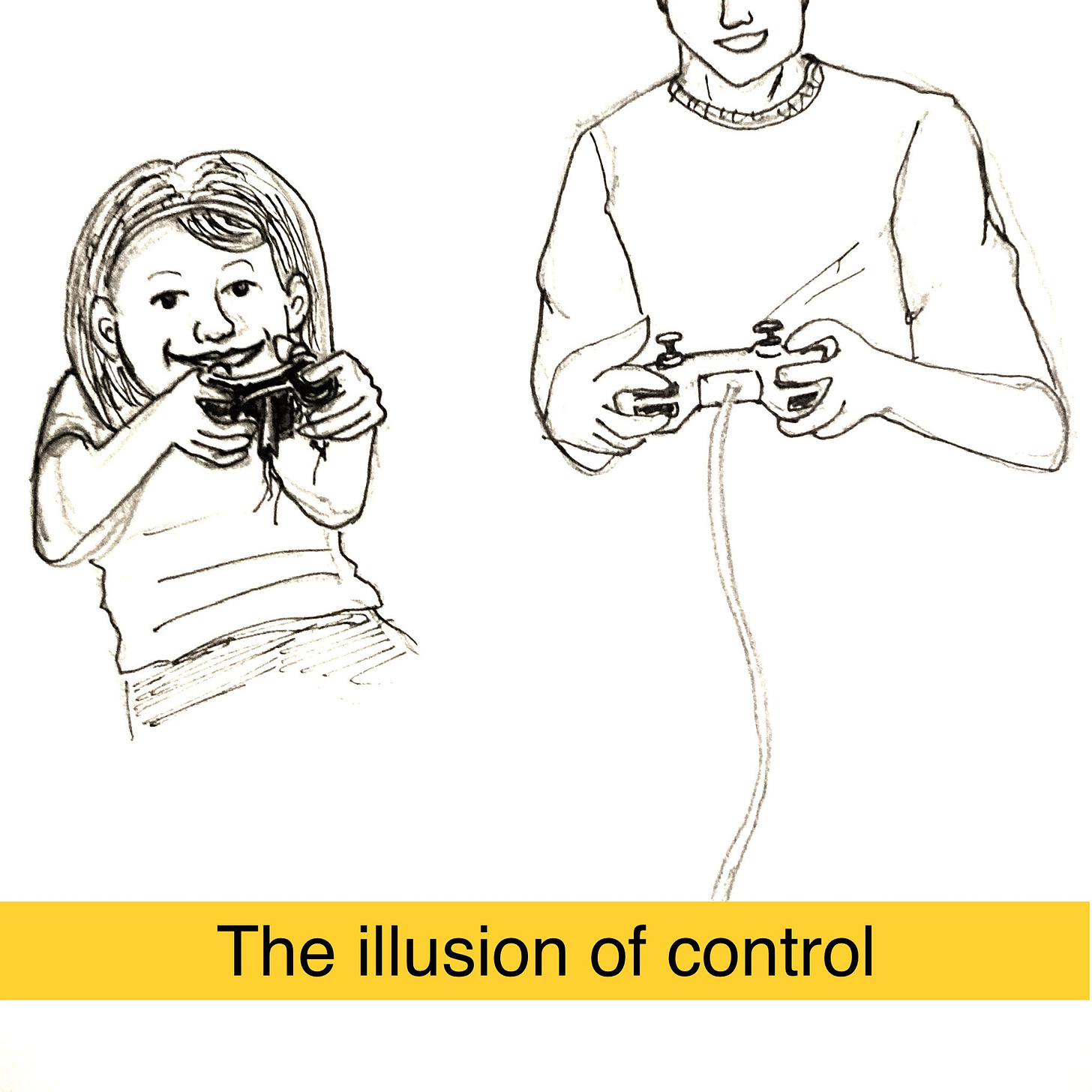
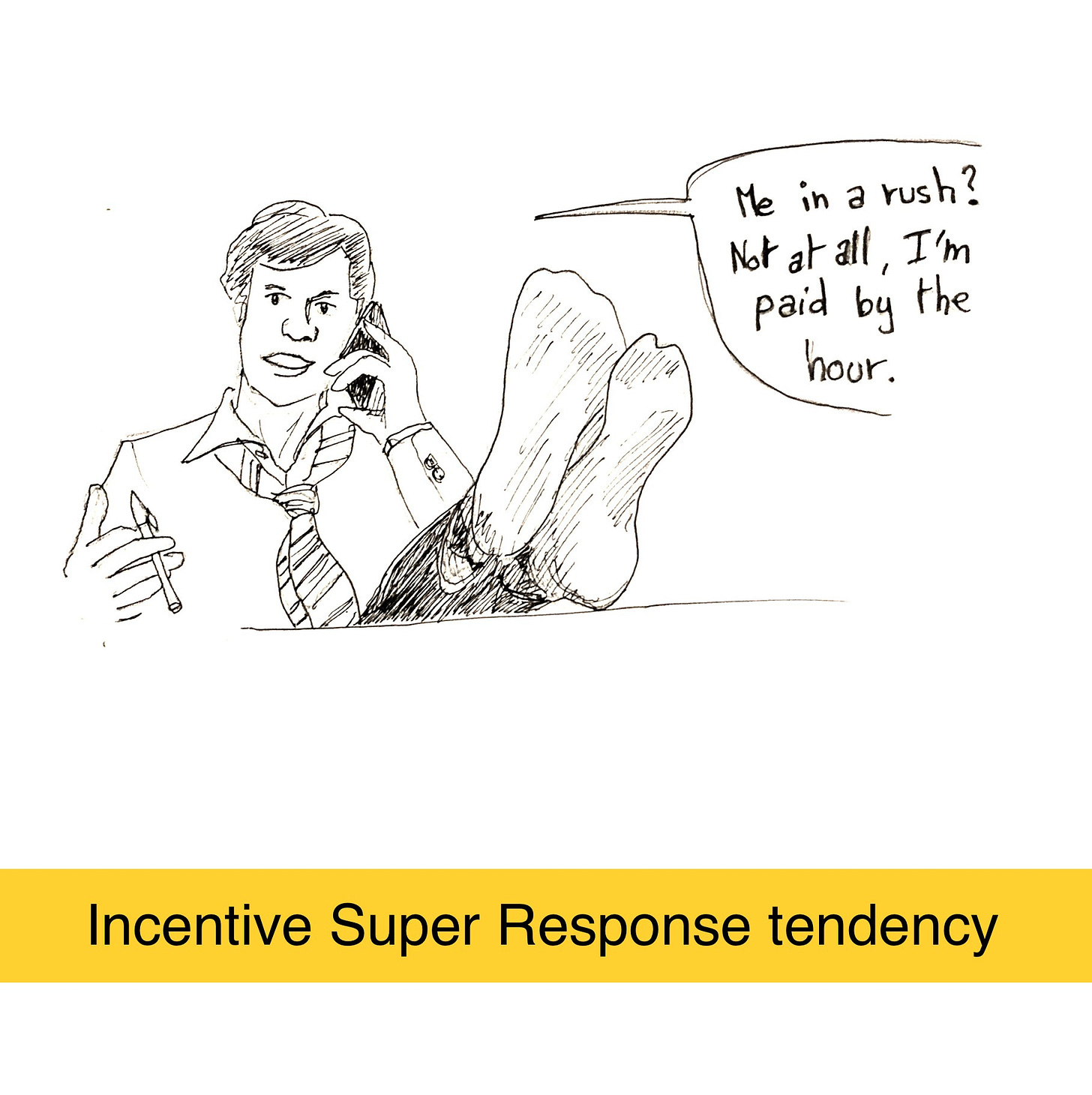
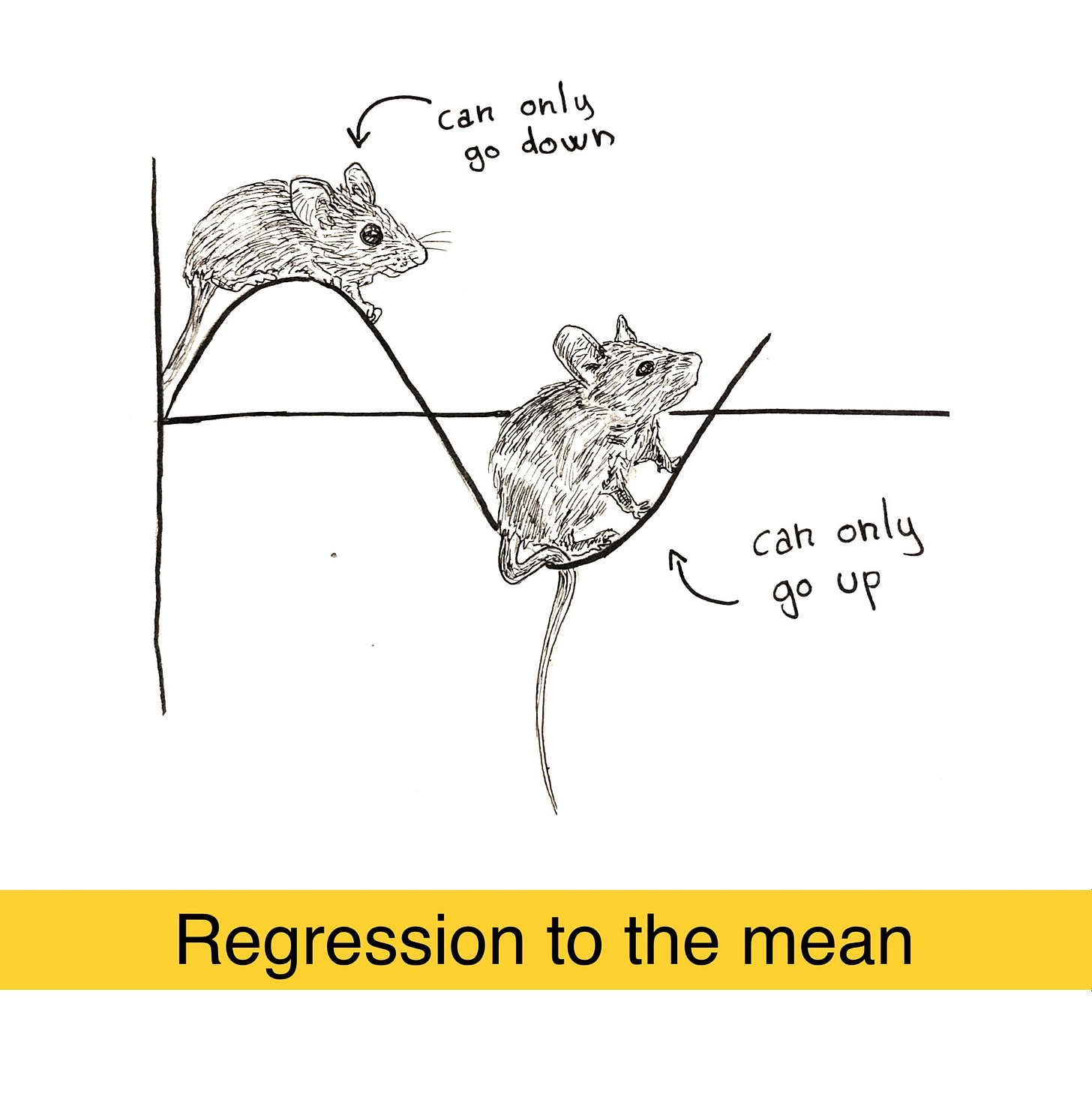
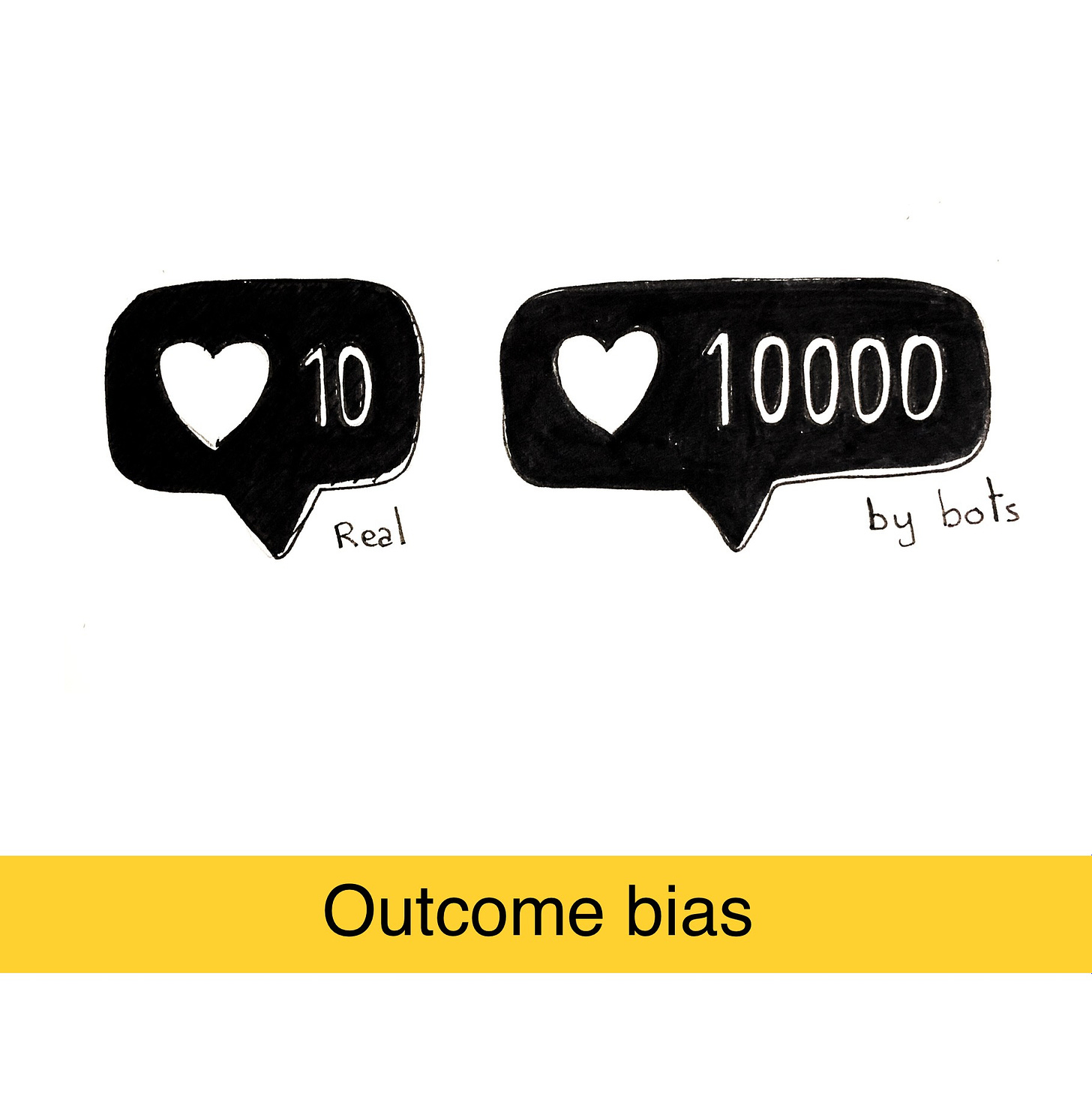
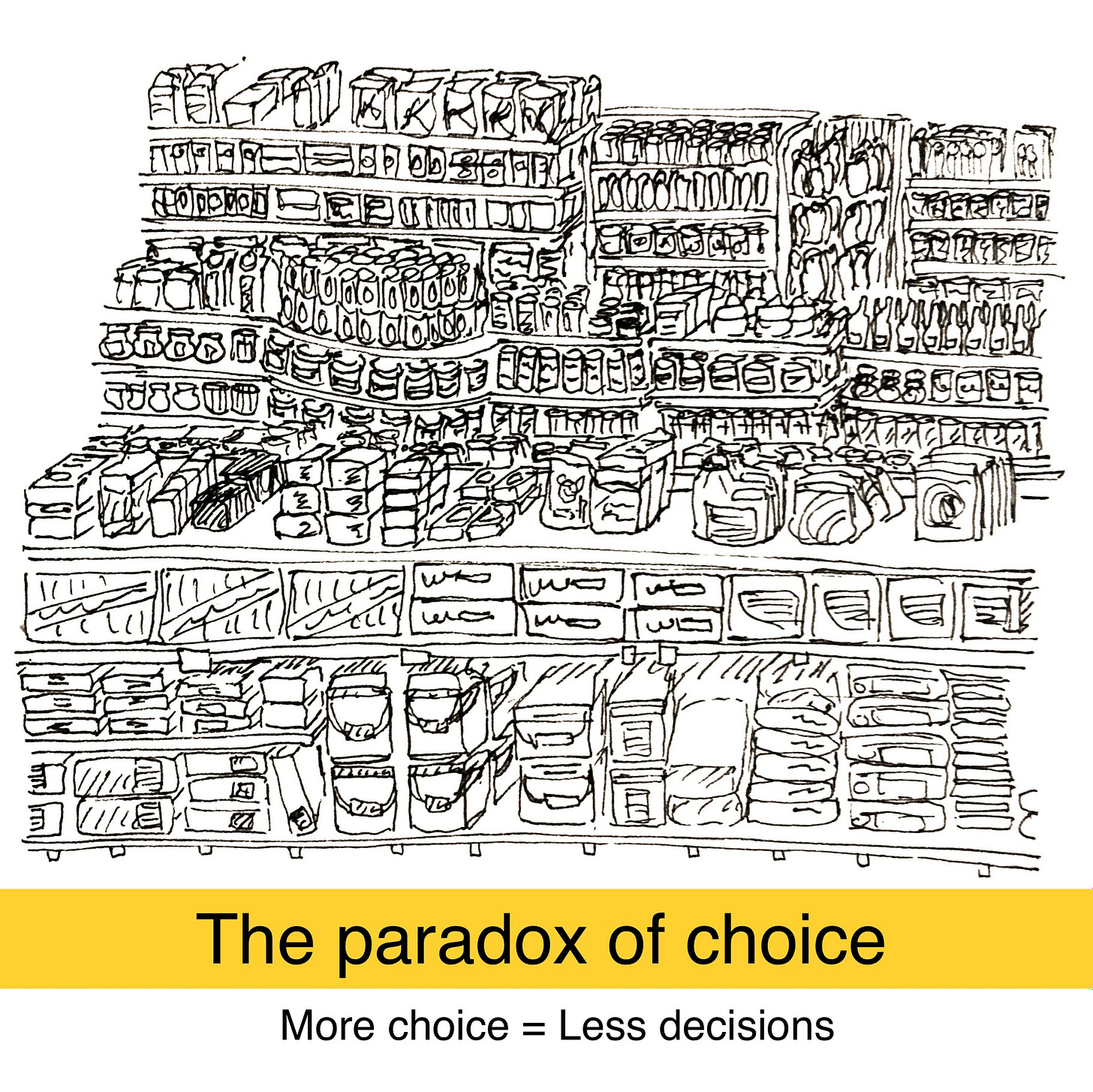

Great examples again Lud, thank you. I think my favorite is the Show-fer Knowledge, often happens so hope people can recognize.
And the one I see often is The paradox of choice ... I love having lots of options, but perhaps I have always known my qualifiers even without consciously knowing it beforehand.